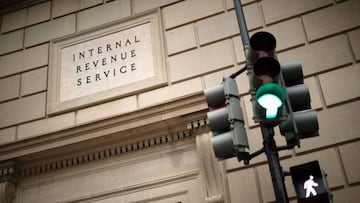Can I still file my taxes on Monday 17 May?
The deadline for IRS tax returns is only hours away, but you still have time to complete your 2020 filing and avoid being hit with late filing penalties.


Tax Day 2021 is here after the IRS agreed to extend the deadline, giving filers an extra month to get their financial affairs in order. The tax return deadline is Monday 17 May, but does that mean that you can still file on the day?
Yes! Speaking to CBS News, Mark Steber, chief tax information officer at Jackson Hewitt Tax Service, says that filers must get their returns filed “by the deadline, midnight on the 17th, or run the risk of late filing penalty, late payment penalty and failure to pay penalty.”
The deadline to file taxes is this upcoming Monday — but you can still file for an extension. Here’s how pic.twitter.com/WTffyPFpnH
— CBS News (@CBSNews) May 15, 2021
The IRS website confirms that it is only those who require “additional time to file beyond the May 17 deadline” who will have to file for an extension.
Financial penalties for late filings
So you have until the end of Monday to file your tax returns on time; if not, you will be fined by the IRS. There is no flat fine used as punishment, and late filers will instead be charged 5% of the total unpaid tax for each month, capped at 25% of the original amount.
Read more
- IRS will start sending tax refunds for the $10,200 unemployment tax break
- Fourteen states will end additional unemployment benefits in June
If you have an outstanding tax balance then you will be charged an additional penalty, which is calculated as 0.5% of the amount owed per month. Again, this is capped at a maximum of 25%. Both of these penalties also accrue interest until the balance is paid, so you should be sure to pay them promptly.
This also applies to anyone who is required to make estimated tax payments throughout the year, with 17 May marking the final date by which you can make the payment for the final quarter of 2020.
IRS offer tax deadline extensions for late filers
If you think you will not be able to complete you 2020 tax returns by the end of Monday 17 May, you should consider applying for an extension from the IRS. The tax authority automatically grants a six-month extension for those who need one, pushing back the deadline to 15 October 2021.
If you're not able to get your 2020 tax return done in time by May 17, don't panic and file an extension. pic.twitter.com/6w5hAQd3OT
— TheStreet (@TheStreet) May 16, 2021
Related stories
However bear in mind that this only excuses you from the late filing penalty, and you will still be fined if you have outstanding tax payments to be made.
The application process for a tax return extension is fairly straight-forward and requires only one form. The IRS advise that you simply need to submit “Form 4868 through their tax professional, tax software or using the Free File link on IRS.gov.”
